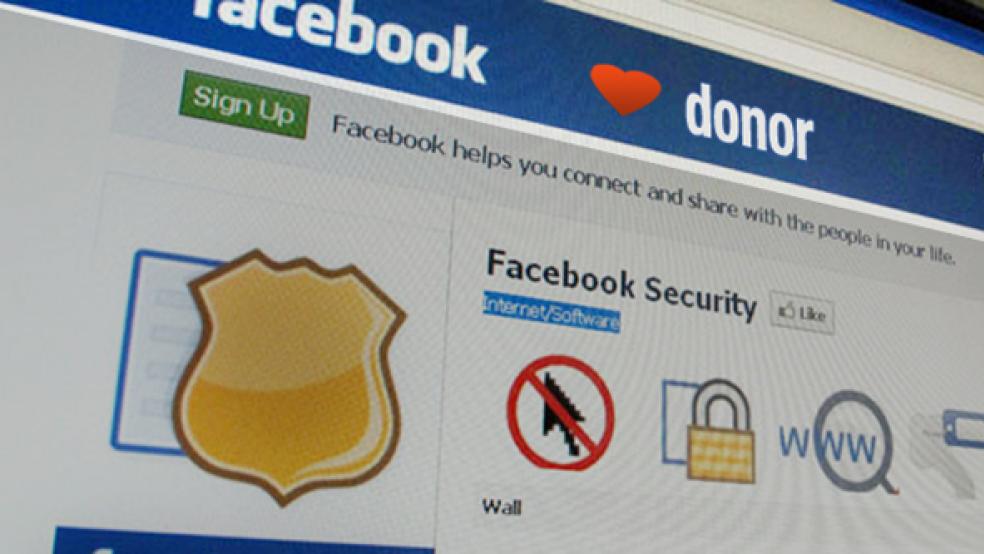Should you post your organ donor status on Facebook? On Tuesday, the social network company launched this option and is wholeheartedly urging its 900 million users to sign on. But some experts urge caution.
“It is a rare foray by Facebook into social engineering from social networking, one with a potentially profound effect,” wrote The New York Times.
In less than 24 hours, millions of people could be shifting their donation status because of Facebook’s extensive reach, alerting family and friends to their stand on a sensitive issue that is often not openly discussed when one is well and too fraught with stress when one is not. The New England Organ Bank told The Fiscal Times that as of noon on Tuesday, it’s received 300 new organ donor registrations. A typical weekday would yield 50 new registrations, says Laura Dempsey, events and media coordinator at the Organ Bank.
“Medical experts believe that broader awareness about organ donation could go a long way toward solving [the organ donor] crisis,” Facebook CEO Mark Zuckerberg and Sheryl Sandberg, Chief Operating Officer,” said this morning in a statement. “We believe by simply telling people you’re an organ donor, the power of sharing and connection can play an important role.”
RELATED: Will the Pressures of Being Public Ruin Facebook?
Conversations with his med-school girlfriend, Zuckerberg related to ABC News, helped him create this new idea. And his friendship with Apple founder Steve Jobs, whose own life was extended by a liver transplant, helped the 27-year-old Facebook founder put that idea into practice. “People can help spread awareness of organ donation, and they want to participate with their friends,” Zuckerberg said.
While few would argue the tremendous good that organ transplantation can do, privacy experts and privacy attorneys see some gray and even dark areas when it comes to expressing a personal “status” about it.
“I’m not even comfortable with the timeline” on Facebook, Mari J. Frank, an attorney and privacy expert in Laguna Niguel, California, told The Fiscal Times. “I think Facebook wants you to reveal as much as you can about yourself, because that helps their third-party vendors who pay them. That information gets shared. It can be seen by others, and what you post lives forever. If you want your friends and family to know your feelings about organ donation, tell them separately – in your will, your trust, on your driver’s license.” And let’s not forget the black market for organs in places such as China, Frank added.
RELATED: Facebook’s IPO: 10 People Who Will Strike It Rich
The problem, though, as the organ donor community sees it, is that many people who support organ donation in this country simply haven’t taken the time to sign up to be a donor; declaring it on their driver’s license isn’t something they’ve gotten around to.
“We’re very, very excited about this new move by Facebook,” says Dempsey of the New England Organ Bank. “It’s a unique opportunity to raise awareness of this issue and to be present in front of an audience we normally wouldn’t be able to reach.”
Dempsey says it’s not just the awareness that’s critical – it’s the “action step” connected to it. “This [Facebook status] offers specific actions you can take, depending on the state you live in. You’ll be sent to DonateLife.net, the national site where people can register to be an organ donor.” Donate Life is partnering with Facebook in this venture.
The stats on the need for organs in this country are certainly alarming.
According to the New England Organ Bank, the oldest independent organ procurement organization in the U.S.:
• Every 11 minutes, the name of someone else needing an organ is added to the wait list.
• More than 114,000 Americans are waiting for lifesaving organ transplants. Hundreds of thousands more need donated tissues.
• Every day, 17 people on average die while waiting for a transplant – or about 6,600 a year.
• Just one donor can help many other people who need organ and tissue transplants.
• The rich and influential do not get special consideration for donated organs. “Although celebrities get most of the media attention” – think Dick Cheney’s heart transplant – “thousands of other patients receive donated organs as well,” says the organ bank. “Organ allocation is blind to wealth or social status.”
• Most transplants are paid for by private health insurance, Medicare or Medicaid programs.
Still, some fret about how far Facebook is going.
“Keep your hands off my organs, Facebook,” said one person this morning.
“Transplantation enriches doctors. Organ transplants turn people into commodities for the rich,” said another.
“What’s next, Zuckerberg – a DNA sample?” said yet another.
Declaring one’s status for organ donation is – of course – as easy as pie on Facebook for those so inclined: There’s a “health and wellness” option on the life event tab, and by clicking there, you can choose from among these options: “organ donor; overcame an illness; quit a habit; new eating habits; weight loss; glasses, contacts, other; broken bone, other life event.” Facebook's user information says, “Each life event starts off set to Public [viewing], but you can use this control [a special tab] to change who sees it.”
Still, attorney Frank urges caution. “If you want to promote something that you believe in, then talk about it in the least invasive way. Write a blog about how it’s helped other people, how marvelous it is, as opposed to declaring your personal donor status on your Facebook page. You just don’t know how the information you put out there is going to be used.”





